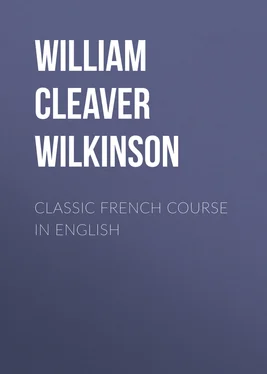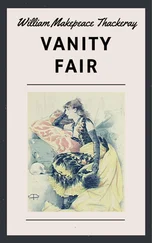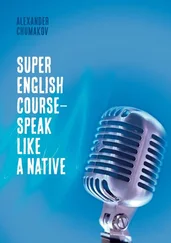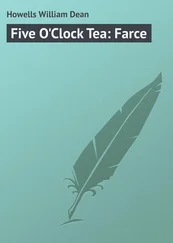William Cleaver Wilkinson - Classic French Course in English
Здесь есть возможность читать онлайн «William Cleaver Wilkinson - Classic French Course in English» — ознакомительный отрывок электронной книги совершенно бесплатно, а после прочтения отрывка купить полную версию. В некоторых случаях можно слушать аудио, скачать через торрент в формате fb2 и присутствует краткое содержание. Жанр: foreign_edu, foreign_language, Языкознание, на английском языке. Описание произведения, (предисловие) а так же отзывы посетителей доступны на портале библиотеки ЛибКат.
- Название:Classic French Course in English
- Автор:
- Жанр:
- Год:неизвестен
- ISBN:нет данных
- Рейтинг книги:3 / 5. Голосов: 1
-
Избранное:Добавить в избранное
- Отзывы:
-
Ваша оценка:
- 60
- 1
- 2
- 3
- 4
- 5
Classic French Course in English: краткое содержание, описание и аннотация
Предлагаем к чтению аннотацию, описание, краткое содержание или предисловие (зависит от того, что написал сам автор книги «Classic French Course in English»). Если вы не нашли необходимую информацию о книге — напишите в комментариях, мы постараемся отыскать её.
Classic French Course in English — читать онлайн ознакомительный отрывок
Ниже представлен текст книги, разбитый по страницам. Система сохранения места последней прочитанной страницы, позволяет с удобством читать онлайн бесплатно книгу «Classic French Course in English», без необходимости каждый раз заново искать на чём Вы остановились. Поставьте закладку, и сможете в любой момент перейти на страницу, на которой закончили чтение.
Интервал:
Закладка:
Most noble and illustrious drinkers, and you thrice precious pockified blades (for to you, and none else, do I dedicate my writings), Alcibiades, in that dialogue of Plato's which is entitled, "The Banquet," whilst he was setting forth the praises of his schoolmaster Socrates (without all question the prince of philosophers), amongst other discourses to that purpose said that he resembled the Sileni. Sileni of old were little boxes, like those we now may see in the shops of apothecaries, painted on the outside with wanton toyish figures, as harpies, satyrs, bridled geese, horned hares, saddled ducks, flying goats, thiller harts, and other such counterfeited pictures, at pleasure, to excite people unto laughter, as Silenus himself, who was the foster-father of good Bacchus, was wont to do; but within those capricious caskets called Sileni, were carefully preserved and kept many rich and fine drugs, such as balm, ambergreese, amomon, musk, civet, with several kinds of precious stones, and other things of great price. Just such another thing was Socrates; for to have eyed his outside, and esteemed of him by his exterior appearance, you would not have given the peel of an onion for him, so deformed he was in body, and ridiculous in his gesture.... Opening this box, you would have found within it a heavenly and inestimable drug, a more than human understanding, an admirable virtue, matchless learning, invincible courage, inimitable sobriety, certain contentment of mind, perfect assurance, and an incredible disregard of all that for which men commonly do so much watch, run, sail, fight, travel, toil, and turmoil themselves.
Whereunto (in your opinion) doth this little flourish of a preamble tend? For so much as you, my good disciples, and some other jolly fools of ease and leisure,… are too ready to judge, that there is nothing in them but jests, mockeries, lascivious discourse, and recreative lies;… therefore is it, that you must open the book, and seriously consider of the matter treated in it. Then shall you find that it containeth things of far higher value than the box did promise; that is to say, that the subject thereof is not so foolish, as by the title at the first sight it would appear to be.
…Did you ever see a dog with a marrow-bone in his mouth?… Like him, you must, by a sedulous lecture [reading], and frequent meditation, break the bone, and suck out the marrow; that is, my allegorical sense, or the things I to myself propose to be signified by these Pythagorical symbols;… the most glorious doctrines and dreadful mysteries, as well in what concerneth our religion, as matters of the public state and life economical.
Up to this point, the candid reader has probably been conscious of a growing persuasion that this author must be at bottom a serious if also a humorous man,—a man, therefore, excusably intent not to be misunderstood as a mere buffoon. But now let the candid reader proceed with the following, and confess, upon his honor, if he is not scandalized and perplexed. What shall be said of a writer who thus plays with his reader?
Do you believe, upon your conscience, that Homer, whilst he was couching his Iliad and Odyssey, had any thought upon those allegories which Plutarch, Heraclides Ponticus, Eustathius, Phornutus, squeezed out of him, and which Politian filched again from them? If you trust it, with neither hand nor foot do you come near to my opinion, which judgeth them to have been as little dreamed of by Homer, as the gospel sacraments were by Ovid, in his Metamorphoses; though a certain gulligut friar, and true bacon-picker, would have undertaken to prove it, if, perhaps, he had met with as very fools as himself, and, as the proverb says, "a lid worthy of such a kettle."
If you give any credit thereto, why do not you the same to these jovial new Chronicles of mine? Albeit, when I did dictate them, I thought thereof no more than you, who possibly were drinking the whilst, as I was. For, in the composing of this lordly book, I never lost nor bestowed any more, nor any other time, than what was appointed to serve me for taking of my bodily refection; that is, whilst I was eating and drinking. And, indeed, that is the fittest and most proper hour, wherein to write these high matters and deep sentences; as Homer knew very well, the paragon of all philologues, and Ennius, the father of the Latin poets, as Horace calls him, although a certain sneaking jobbernol alleged that his verses smelled more of the wine than oil.
Does this writer quiz his reader, or, in good faith, give him a needed hint? Who shall decide?
We have let our first extract thus run on to some length, both for the reason that the passage is as representative as any we could properly offer of the quality of Rabelais, and also for the reason that the key of interpretation is here placed in the hand of the reader, for unlocking the enigma of this remarkable book. The extraordinary horse-play of pleasantry, which makes Rabelais unreadable for the general public of to-day, begins so promptly, affecting the very prologue, that we could not present even that piece of writing entire in our extract. We are informed that the circulation in England of the works of Rabelais, in translation, has been interfered with by the English government, on the ground of their indecency. We are bound to admit, that, if any writings whatever were to be suppressed on that ground, the writings of Rabelais are certainly entitled to be of the number. It is safe to say that never, no, not even in the boundless license of the comedy of Aristophanes, was more flagrant indecency, and indecency proportionately more redundant in volume, perpetrated in literature, than was done by Rabelais. Indecency, however, it is, rather than strict lasciviousness. Rabelais sinned against manners, more than he sinned against morals. But his obscenity is an ocean, without bottom or shore. Literally, he sticks at nothing that is coarse. Nay, this is absurdly short of expressing the fact. The genius of Rabelais teems with invention of coarseness, beyond what any one could conceive as possible, who had not taken his measure of possibility from Rabelais himself. And his diction was as opulent as his invention.
Such is the character of Rabelais the author. What, then, was it, if not fondness for paradox, that could prompt Coleridge to say, "I could write a treatise in praise of the moral elevation of Rabelais' works, which would make the church stare and the conventicle groan, and yet would be truth, and nothing but the truth"? If any thing besides fondness for paradox inspired Coleridge in saying this, it must, one would guess, have been belief on his part in the allegorical sense hidden deep underneath the monstrous mass of the Rabelaisian buffoonery. A more judicial sentence is that of Hallam, the historian of the literature of Europe: "He [Rabelais] is never serious in a single page, and seems to have had little other aim, in his first two volumes, than to pour out the exuberance of his animal gayety."
The supply of animal gayety in this man was something portentous. One cannot, however, but feel that he forces it sometimes, as sometimes did Dickens those exhaustless animal spirits of his. A very common trick of the Rabelaisian humor is to multiply specifications, or alternative expressions, one after another, almost without end. From the second book of his romance,—an afterthought, probably, of continuation to his unexpectedly successful first book,—we take the last paragraph of the prologue, which shows this. The veracious historian makes obtestation of the strict truth of his narrative, and imprecates all sorts of evil upon such as do not believe it absolutely. We cleanse our extract a little:—
And, therefore, to make an end of this Prologue, even as I give myself to an hundred thousand panniers-full of fair devils, body and soul,… in case that I lie so much as one single word in this whole history; after the like manner, St. Anthony's fire burn you, Mahoom's disease whirl you, the squinance with a stitch in your side, and the wolf in your stomach truss you, the bloody flux seize upon you, the cursed sharp inflammations of wild fire, as slender and thin as cow's hair strengthened with quicksilver, enter into you,… and, like those of Sodom and Gomorrha, may you fall into sulphur, fire, and bottomless pits, in case you do not firmly believe all that I shall relate unto you in this present Chronicle.
Читать дальшеИнтервал:
Закладка:
Похожие книги на «Classic French Course in English»
Представляем Вашему вниманию похожие книги на «Classic French Course in English» списком для выбора. Мы отобрали схожую по названию и смыслу литературу в надежде предоставить читателям больше вариантов отыскать новые, интересные, ещё непрочитанные произведения.
Обсуждение, отзывы о книге «Classic French Course in English» и просто собственные мнения читателей. Оставьте ваши комментарии, напишите, что Вы думаете о произведении, его смысле или главных героях. Укажите что конкретно понравилось, а что нет, и почему Вы так считаете.












